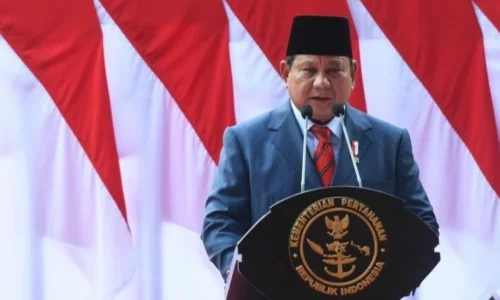Telkomsel, alongside 30 global tech companies such as Microsoft, Nokia, and Huawei, has taken a groundbreaking step by establishing the concept of Autonomous Networks and proclaiming the Autonomous Networks Manifesto.
The Autonomous Networks initiative represents a cutting-edge technology poised to revolutionize communication networks, turning them into production networks for various industries.
Nugroho, Director of Network at Telkomsel, underscores the necessity for smart and sophisticated automated networks to provide a seamless digital experience while enhancing operational efficiency.
To expedite the broad adoption of Autonomous Networks, Telkomsel, along with its 30 tech counterparts, is introducing the Autonomous Networks Manifesto.
Setting the standards
This manifesto will serve as a set of standards and practices to accelerate the implementation of self-reliant networks, thereby bolstering the growth of the telecommunications and digital industries.
Nugroho emphasized Telkomsel’s role as the sole telecommunications company from Indonesia, together with AIS Thailand, representing Southeast Asia as pioneers in the deployment of Autonomous Networks.
“This initiative signifies our commitment to delivering an enhanced digital experience to our customers while driving cross-industry digital transformation, a key factor in aiding businesses to become more productive, efficient, and secure,” He stated.
Autonomous Networks offer an array of benefits:
- Maximizing the utilization of 5G-advanced networks, transforming computing networks into corporate cloud access points.
- Employing environmentally friendly, low-carbon networks to conserve energy and reduce emissions.
- Ensuring reliable network services’ speed and stability through AI-based self-center intelligence, capable of autonomously adjusting, repairing, and enhancing network performance.
- Generating cost savings and operational efficiency improvements.
These 30 companies, incorporated in the Autonomous Networks initiative, are spread across various continents. Notable participants include Asia’s Telkomsel, AIS Thailand, China Mobile, China Telecom, Chunghwa Telecom, Huawei, SAS, and Wipro.
From the Americas, companies like Microsoft, IBM, Telecom Argentina, and Verizon are actively engaged. Meanwhile, Europe is well-represented by Orange, Telefónica, Telenor, Ericsson, and Nokia.
In embracing Autonomous Networks, Telkomsel leads the way in Southeast Asia, underlining its dedication to delivering enhanced digital experiences while supporting cross-industry digital transformation to enhance business productivity, efficiency, and security.
This innovative technology offers myriad advantages, including maximizing the use of 5G-advanced networks, creating environmentally friendly and low-carbon networks, ensuring stable and high-speed network services through AI-driven self-center intelligence, and providing cost savings and operational efficiency improvements.









